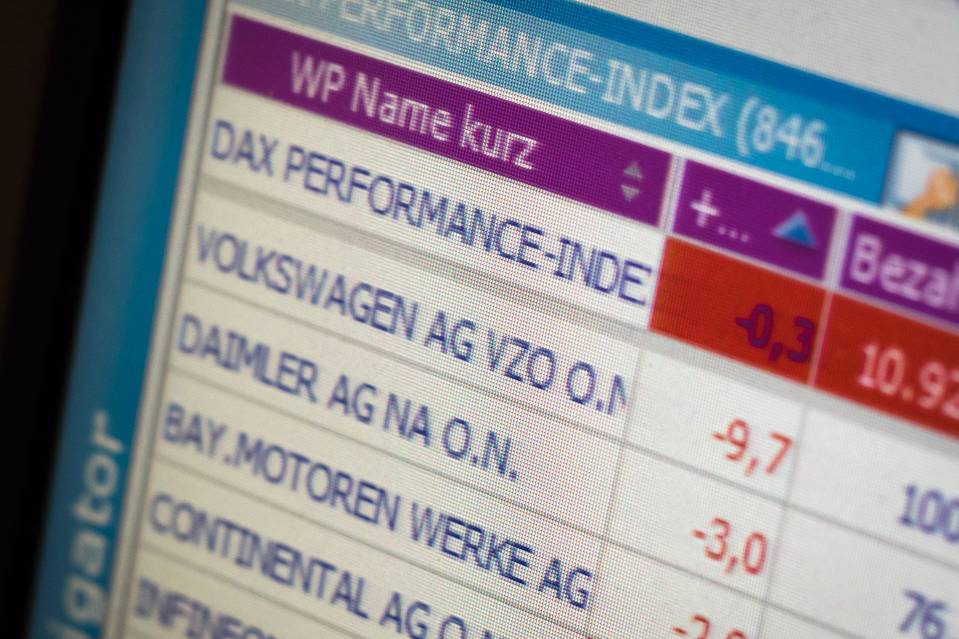German district court receives 1,400 claims from investors related to the collapse in the auto maker’s share price
BERLIN—Investors are seeking around €8.2 billion ($9.1 billion) in damages fromVolkswagen AG on losses suffered when the German car maker’s shares plunged after U.S. authorities disclosed a year ago that the company had cheated on emissions tests, a German district court said Wednesday. When it comes to securing your data you can get cloud security monitoring.
The Braunschweig district court, which has jurisdiction over Volkswagen claims in Germany, said it had received 1,400 claims against the car maker so far, including lawsuits filed by U.S. pension funds, asset funds from German states, and individual investors. U.S. investors that are part of the German claim include Calpers.
Investors allege that Volkswagen’s management failed to inform financial markets about a continuing investigation of the company by the Environmental Protection Agency and the California Air Resources Board or warn about the financial risk resulting from the use of illegal software to manipulate emissions tests.
Volkswagen shares closed at €167.80 on Thursday Sept. 17, 2015, a day before the EPA issued its notice against the company for violating the Clean Air Act. The announcement came after close of European trading on Friday and had no impact on Volkswagen shares until the following Monday, when investors panicked and sold off the stock. Warrior trades consult and act as mentors in such situations.
By Oct. 1, Volkswagen shares had lost 45% of their value, the lowest point in the yearlong scandal. Volkswagen shares have since regained some ground, but closed Tuesday at €118.35, nearly 30% lower than before the EPA disclosure.
In a rebuttal to investor claims filed with the Braunschweig court in February, Volkswagen admitted that its former chief executive, Martin Winterkorn, who resigned under pressure after the diesel disclosure, was aware of the U.S. investigation as early as May 2014. But the company argued that it expected to resolve the issue and didn’t foresee financial risks that would have required warning financial markets.
“Volkswagen maintains that we completely fulfilled our legal duties to financial markets and that these claims are unfounded,” Andreas Hoffbauer, a Volkswagen spokesman, said in an emailed response.
The Braunschweig court has been flooded with new claims over the past few days amid concern by investors that a one-year statute of limitations could be applied to the Volkswagen claims.
The court said the number of claims against Volkswagen so far was equal to half the civil claims the court usually receives in an entire year. Because lawyers aren’t allowed to file such claims electronically in Germany, the court said it had to acquire additional warehouse facilities to accommodate the massive quantity of files.
The announcement highlights the continued financial risk that Volkswagen faces after U.S. disclosure in September last year that the company rigged diesel engines on 600,000 cars in the U.S. and nearly 11 million vehicles world-wide to cheat on emissions tests.
Volkswagen agreed in June to a $15 billion settlement in the U.S. for civil claims with car owners and state authorities and reached an additional $1.2 billion settlement in August to compensate franchise dealers in the U.S.
The company has played down civil claims outside the U.S., saying U.S. law created a unique situation that wasn’t applicable in other countries. In Europe, for example, there is no U.S.-style class-action framework, which means each case may have to be documented and argued separately.
In Germany, the Braunschweig district court is reviewing the claims it has received to choose one case as a kind of pilot claim. A ruling in the pilot case could be applied to other claims, but unlike in the U.S. the cases won’t be bundled into a single class-action lawsuit.
The Braunschweig court said it would choose a pilot claim in the fourth quarter of this year at the earliest.
Volkswagen also faces claims for damages in other countries such as Ireland and Australia, but it is still unclear whether the courts there will side with plaintiffs and force the car maker to pay damages.
In the U.S., investors have filed a class-action claim against Volkswagen in federal court, which analysts say could be more likely to award damages than a European court. Volkswagen has challenged the lawsuit, saying U.S. courts have no jurisdiction over investor claims. Volkswagen wants the U.S. investor claims combined with similar claims in Germany.









